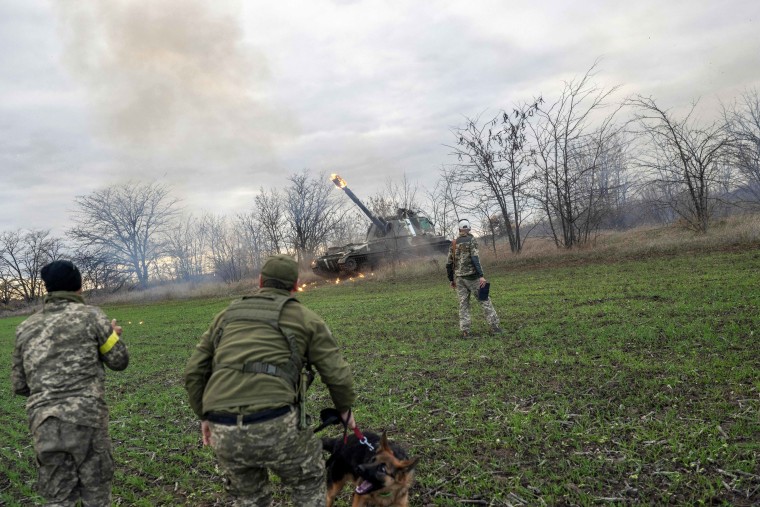Kherson, the only Ukrainian provincial capital captured by Russia, has been liberated.
Ukrainian troops entered the southern Ukrainian city on Friday after a Russian withdrawal, and were immediately swarmed by cheering civilians crying tears of joy over the end of enduring Russian occupation.
Russia still holds huge chunks of Ukraine's territory. But the Ukrainian government's resumption of control over Kherson is a big deal, for a couple of reasons.
First, Kherson was one of Russia's most humiliating setbacks in the war so far. It was the most important city that Moscow had managed to secure in its invasion. Kherson is also part of one of four provinces that Russia unilaterally annexed and declared part of the Russian Federation with much fanfare — and international condemnation — in September.
Ukraine's success is encouraging, but it doesn't necessarily move the war in a clearer direction.
Russian occupiers put up big signs in Kherson declaring “Russia is here forever!” in an attempt to demoralize local residents and will their imperialist project into existence. And yet weeks later, Kherson is back under Ukrainian control.
Analysts of the war say that Russia's retreat beyond the Dnipro River, just south of the city, provides Russia's battered troops with a "natural defensive line." In other words, the withdrawal signals that Russia is trying to regroup in the region. (Ukraine was initially concerned that Russia's announced withdrawal from Kherson was an attempt to lure Ukrainian forces into a trap in the city, but that concern seems to have passed.)
Second, the recapture of Kherson — a goal that Ukrainian forces have been working toward since the summer — provides Ukraine with a tremendous morale boost. With the assistance of advanced Western weapons, Ukraine has scored one unlikely victory after another on the battlefield, and has finally wrested back one of Russia's most prized territorial grabs. It is the kind of event that makes citizens and soldiers believe that bigger victories are possible. It is also the kind of success that gives Ukrainian President Volodymyr Zelenskyy more leverage in calling for additional military and economic aid — if he's notching wins, it's hard to argue that he should slow down now.
Ukraine's success is encouraging, but it doesn't necessarily move the war in a clearer direction. Russia has responded in the past to Ukraine's successful counteroffensives by mobilizing more troops, trying to annex land and threatening to use nuclear weapons. Arguably this time it's an even higher-stakes situation for Putin, because his annexation attempts are being foiled, which undermines a key war aim for him.
It's possible that Russian President Vladimir Putin, under pressure from the hawkish ultranationalist right in his country that he's fostered for years, could once more feel pressure to double down. That could entail acts like engaging in a more brutal style of warfare — increased targeting of civilians and civilian infrastructure, for example — and additional mobilizations.
Ukraine's continued success also means that conversations about how to end the war diplomatically — which Zelenskyy and President Joe Biden have both said will eventually have to happen — will likely be pushed further into the future. Talks about how and when the war will end will likely require the war to feel less dynamic than it currently does.

